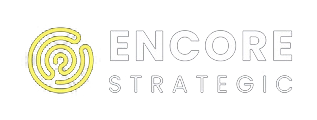The Economist called unsuccessful hiring ‘the single biggest problem in business today.’
It’s not difficult to see why. The average hiring mistake costs 30 percent of the employee’s base salary in hard costs and productivity loss, according to estimates. This statistic becomes even more alarming when you consider the success rate of hiring managers is thought to be just 50 percent.
Even companies like Google, who have access to the world’s top talent, admit they get it wrong. Google was once infamous for it’s strenuous interview process, full of complex brain-teasers like ‘How many golf balls would fit inside a 747.” But Google’s senior vice president of people operations, Laszlo Brock, acknowledged,
“We found the brainteasers are a complete waste of time. They don’t predict anything. They serve primarily to make the interviewer feel smart.”
So, why do hiring decisions fail so often? And, even more importantly, what can we do about it?
First things first – what doesn’t work
Unstructured job interviews
In one of the most extensive studies published on the subject, researchers conducted a meta-analysis of 85 years of research on the predictors of job performance. They found unstructured interviews have an r2 of .14, meaning they can explain just 14 percent of an employee’s performance.
Managers who take a casual, unstructured approach may feel like they’re doing more to assess how well a candidate will fit into the workplace culture. Unsurprisingly though, a 45-minute conversation—followed by a manager’s ‘gut call’—does not always result in a successful hire. Which leads us to our next major issue…
Gut Decisions
You know a good hire when you see it, right? Unfortunately the data suggests otherwise.
Researchers looked at 15 firms that used job tests to predict worker performance and retention. The tests placed applicants into three buckets: green (positive), yellow (tentative), or red (negative). The results played out exactly how you’d expect. The greens stayed longer than the yellows. The yellows stayed longer than the reds.
However, sometimes managers decided to override the test results and go with their gut. These hires turned out to be busts. When managers tried to outsmart these data-focused hiring systems, it’s the systems that ended up looking smart.

Hiring based upon years of experience or education
If you thought looking basing your decision on objective stats like these would yield better results, think again. The same study referenced above found that years of education explained just seven percent of an employee’s performance. Worse yet, years of experience didn’t make a statistically significant impact on performance predictions.
So, what actually works?
Work sample tests
Assessing candidates based upon a sample project, similar to what they’d experience on the job, was found to be one of the best predictors of job success (29 percent). Of course, actual performance depends on a multitude of skills that cannot be assessed through a job test alone. But for candidates who will be doing task-oriented work, job tests can provide valuable insights. Unfortunately, not all jobs are structured in a way where a sample test makes sense (e.g. management roles or non-technical positions.)
Structured interviews
If conducted correctly, interviews actually can be a strong predictor of job success (26 percent). Here’s the caveat, candidates should be asked a consistent set of questions with specific criteria to evaluate the response quality. When a hiring team fails to clearly define what traits they’re looking for and a process for evaluating said traits, they’re destined to be biased–and often wrong.
Assessment tools
Objective, standardized assessment tools have proven to be one of the top indicators of hiring success. At Encore, we use DISC profiling to help our client’s identify the best candidates for a role—and their organization as a whole. Make no mistake, this isn’t a personality test. Instead, DISC is a behavioral profiling tool which offers insights to help you understand a candidate’s primary motivators, natural strengths, and communication style. After witnessing the power of DISC firsthand, it’s become a fundamental part of our process. (Learn more about that here.)
To sum it all up, hiring is hard. And nobody is very good at doing it alone (even the head honchos of Google.) To do it right, you have to develop an objective process. Without this, you’re inviting disaster.


